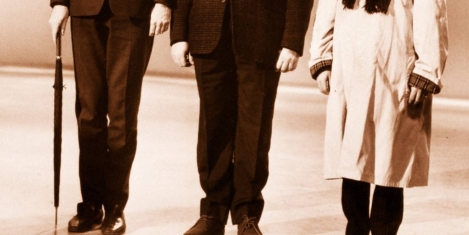To provide the best experiences, we use technologies like cookies to store and/or access device information. Consenting to these technologies will allow us to process data such as browsing behaviour or unique IDs on this site. Not consenting or withdrawing consent, may adversely affect certain features and functions.
The technical storage or access is strictly necessary for the legitimate purpose of enabling the use of a specific service explicitly requested by the subscriber or user, or for the sole purpose of carrying out the transmission of a communication over an electronic communications network.
The technical storage or access is necessary for the legitimate purpose of storing preferences that are not requested by the subscriber or user.
The technical storage or access that is used exclusively for statistical purposes.
The technical storage or access that is used exclusively for anonymous statistical purposes. Without a subpoena, voluntary compliance on the part of your Internet Service Provider, or additional records from a third party, information stored or retrieved for this purpose alone cannot usually be used to identify you.
The technical storage or access is required to create user profiles to send advertising, or to track the user on a website or across several websites for similar marketing purposes.
 The COVID-19 pandemic is driving a fundamental shift in the way companies operate, accelerating the need for an adaptable and agile workforce to drive business success. According to Mercer’s 2021 Global Talent Trends study, the financial impact and work-life disruption caused by the pandemic is causing UK employers to focus on redefining flexibility and skills development to ensure their business and employees become more resilient and agile in the face of disruption.
The COVID-19 pandemic is driving a fundamental shift in the way companies operate, accelerating the need for an adaptable and agile workforce to drive business success. According to Mercer’s 2021 Global Talent Trends study, the financial impact and work-life disruption caused by the pandemic is causing UK employers to focus on redefining flexibility and skills development to ensure their business and employees become more resilient and agile in the face of disruption.






 More than 40 percent of young people aged 16-24 surveyed in the UK say they are putting their career or education plans on hold until the pandemic is over. The research, commissioned by
More than 40 percent of young people aged 16-24 surveyed in the UK say they are putting their career or education plans on hold until the pandemic is over. The research, commissioned by 
 Working from home is exacerbating an ‘always on’ culture. Data from a study of UK employees, conducted by virtual team building company
Working from home is exacerbating an ‘always on’ culture. Data from a study of UK employees, conducted by virtual team building company 
 The UK jobs market recovered 170,000 jobs in January as the COVID-19 vaccination roll out boosted employer optimism, claims new research from job search engine
The UK jobs market recovered 170,000 jobs in January as the COVID-19 vaccination roll out boosted employer optimism, claims new research from job search engine 
 ‘Stress by Sector’ data released by
‘Stress by Sector’ data released by 
 Mass redundancies across the UK are having a huge impact on the discretionary effort employees are willing to undertake on behalf of their employer, according to research from career transition firm
Mass redundancies across the UK are having a huge impact on the discretionary effort employees are willing to undertake on behalf of their employer, according to research from career transition firm 
 New research from Opinion Matters, commissioned by
New research from Opinion Matters, commissioned by 
 In April 2020, 47 percent of UK employees worked from home and for many, they still haven’t returned to the office. The events of 2020 have been unprecedented, as rules and advice from the government have changed at rapid rates in response to the Coronavirus Pandemic. But one thing that remained relatively consistent is the encouragement for those who can, to work from home.
In April 2020, 47 percent of UK employees worked from home and for many, they still haven’t returned to the office. The events of 2020 have been unprecedented, as rules and advice from the government have changed at rapid rates in response to the Coronavirus Pandemic. But one thing that remained relatively consistent is the encouragement for those who can, to work from home. 


 With six weeks still to go until the Chancellor’s Budget, the CIPD is urging the Government to act early to extend the furlough scheme to protect jobs, support incomes and enhance skills development. Its calls are outlined in a report called
With six weeks still to go until the Chancellor’s Budget, the CIPD is urging the Government to act early to extend the furlough scheme to protect jobs, support incomes and enhance skills development. Its calls are outlined in a report called 







February 10, 2021
Ten point green plan needs to be embraced by organisations
by Paul Scriven • Comment, Environment